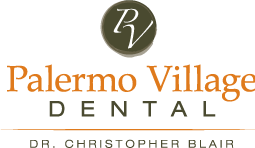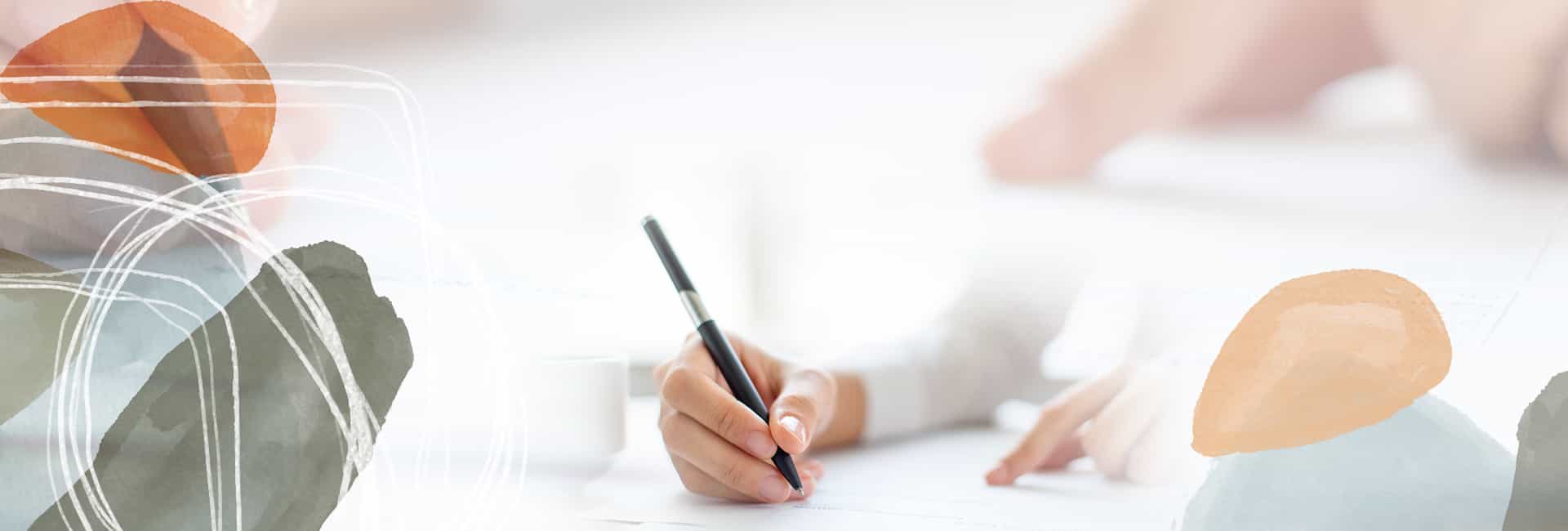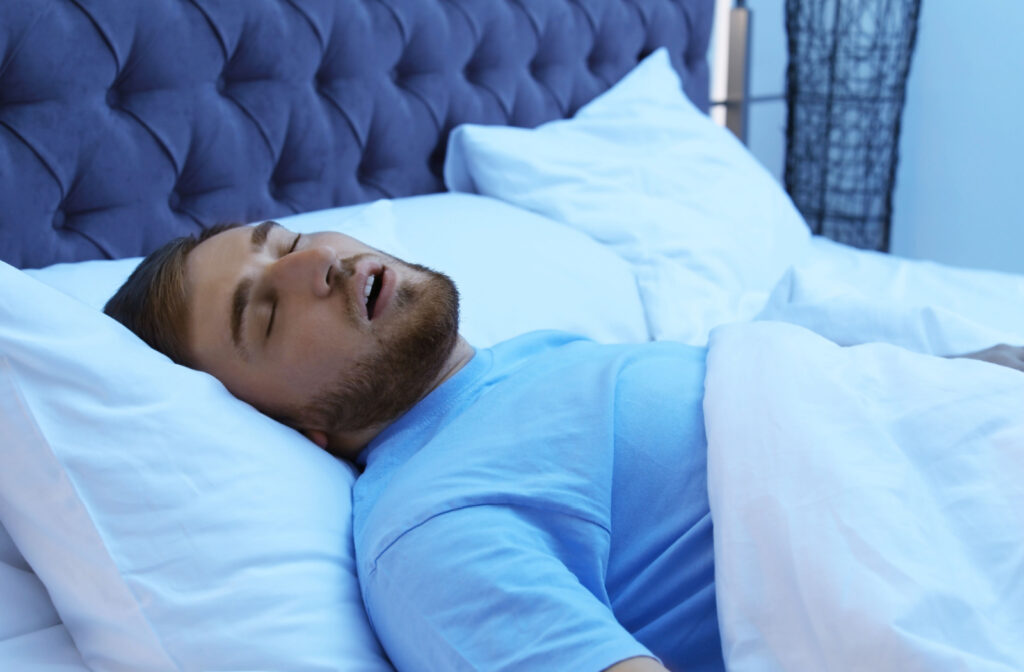Sleep apnea is a common sleep disorder affecting millions of Canadians. If you or someone you’re related to has been diagnosed with sleep apnea, you might wonder if it runs in the family.
While there’s no clear answer to whether sleep apnea is hereditary, research has shown a strong connection between your DNA and your chance of developing the condition. And if sleep apnea is stealing your rest, your dentist could be your nighttime champion with various management options.
What Is Sleep Apnea?
Sleep apnea is a sleep disorder that causes an individual to have repeated moments where they stop breathing throughout the night. This pause in breathing, known as apnea, can last for seconds or even minutes, usually causing the brain to wake the individual from a deep sleep. Even if you don’t remember these moments when you wake up, they can leave you tired throughout the day.
Sleep apnea has 3 main types:
- Obstructive sleep apnea (OSA) occurs when the throat muscles collapse while you sleep, physically blocking the airway.
- Central sleep apnea (CSA) is related to brain function. It occurs when the brain doesn’t send the correct signals to the muscles responsible for breathing.
- Complex sleep apnea is a combination of the other 2 types, and experts aren’t sure of its exact causes.
Symptoms can vary, and your sleeping partner may often be the first to suspect something—especially if your snoring keeps them up. Signs you may have sleep apnea include:
- Loud snoring with silent pauses
- Morning headaches
- Daytime sleepiness
- Gasping or choking at night
- Mood swings and irritability
- Memory problems and poor concentration
- Low sex drive
- Nodding off while driving
Can You Inherit Sleep Apnea?
While researchers have not found a direct link between OSA and genetics, studies indicate that a hereditary component to the disorder may exist.
Those with a family member with OSA are twice as likely to develop it as those without a family history. This higher risk might be due to shared physical traits, similar lifestyles, or growing up in the same environment.
Other Risk Factors for Sleep Apnea
OSA is the most common type of sleep apnea. It occurs when the muscles in the throat relax and the airway narrows or closes during sleep. This condition can lead to significant health problems if left untreated, including high blood pressure, heart disease, and stroke.
While genetics may play a role in the development of sleep apnea, several other factors can increase the risk of the disorder. These factors depend on the type of sleep apnea, but common risk factors include:
- Obesity
- Smoking
- Alcohol and drug use
- Medical conditions such as high blood pressure, diabetes, and heart disease
- Age
- Sex (men are more likely to develop sleep apnea)
- Physical features such as neck circumference
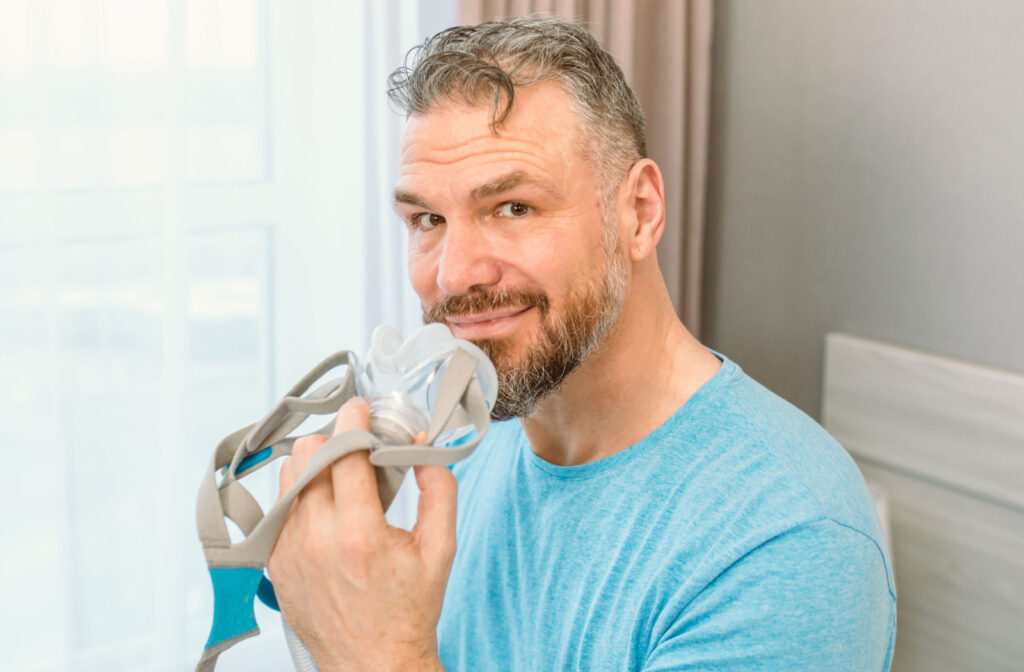
Sleep Apnea Management
Like there are different types of sleep apnea, there are various solutions for it. Your management plan depends on your lifestyle needs and symptoms. Thankfully, a sleep clinic dentist can help you determine which option may offer a comfortable night’s sleep.
CPAP Machines
Continuous positive airway pressure (CPAP) machines are among the most common treatments. This device delivers a steady stream of air into your airway, helping to keep it open and prevent breathing pauses.
Various CPAP machines exist on the market, each with its unique features. Some are equipped with heated humidifiers to make breathing more comfortable. Others come with built-in sleep trackers to monitor your progress.
Oral Appliances
Oral appliances are another popular treatment option for sleep apnea. They work by repositioning your jaw and tongue to help keep your airway open during sleep. These devices are typically custom-made by a dentist and can be adjusted over time to help with fit.
Oral appliances are generally less invasive than CPAP machines and are often easier to travel with.
Solea Sleep
Snoring is a large part of most sleep apnea symptoms, and the Solea Sleep laser is used to shrink the soft palate to improve airflow. It is generally used as an adjunctive therapy to oral appliance therapy or CPAP management of sleep apnea. This is because, on its own, it has minimal impact in treating sleep apnea.
Still, it can help reduce palatal snoring which could help you—and whoever you’re sleeping next to—get a better quality rest. This procedure can be completed in a single session in your dentist’s office and typically requires minimal recovery time.
How to Lower Your Risk of Sleep Apnea
Even if you have a family history of sleep apnea, several approaches can help you reduce your chances of developing the condition. Some ways to lower your risk of sleep apnea include:
- Maintaining a healthy weight through diet and exercise
- Sleeping on your side rather than your back
- Avoiding alcohol and drug use
- Practicing good sleep routines
- Quitting smoking
- Treating medical conditions such as high blood pressure and diabetes
Focus on Good Sleep
While sleep apnea may have a hereditary component, the exact factors that contribute to the disorder remain unclear. If you have a family history of sleep apnea, taking steps to reduce your risk is essential, like maintaining a healthy lifestyle, treating underlying medical conditions, and seeking treatment if you suspect you have sleep apnea.
Palermo Village Dental is ready to help you prioritize your sleep health with various high-tech treatments. High-quality sleep can be in your future. Contact us today or take our sleep apnea quiz.
